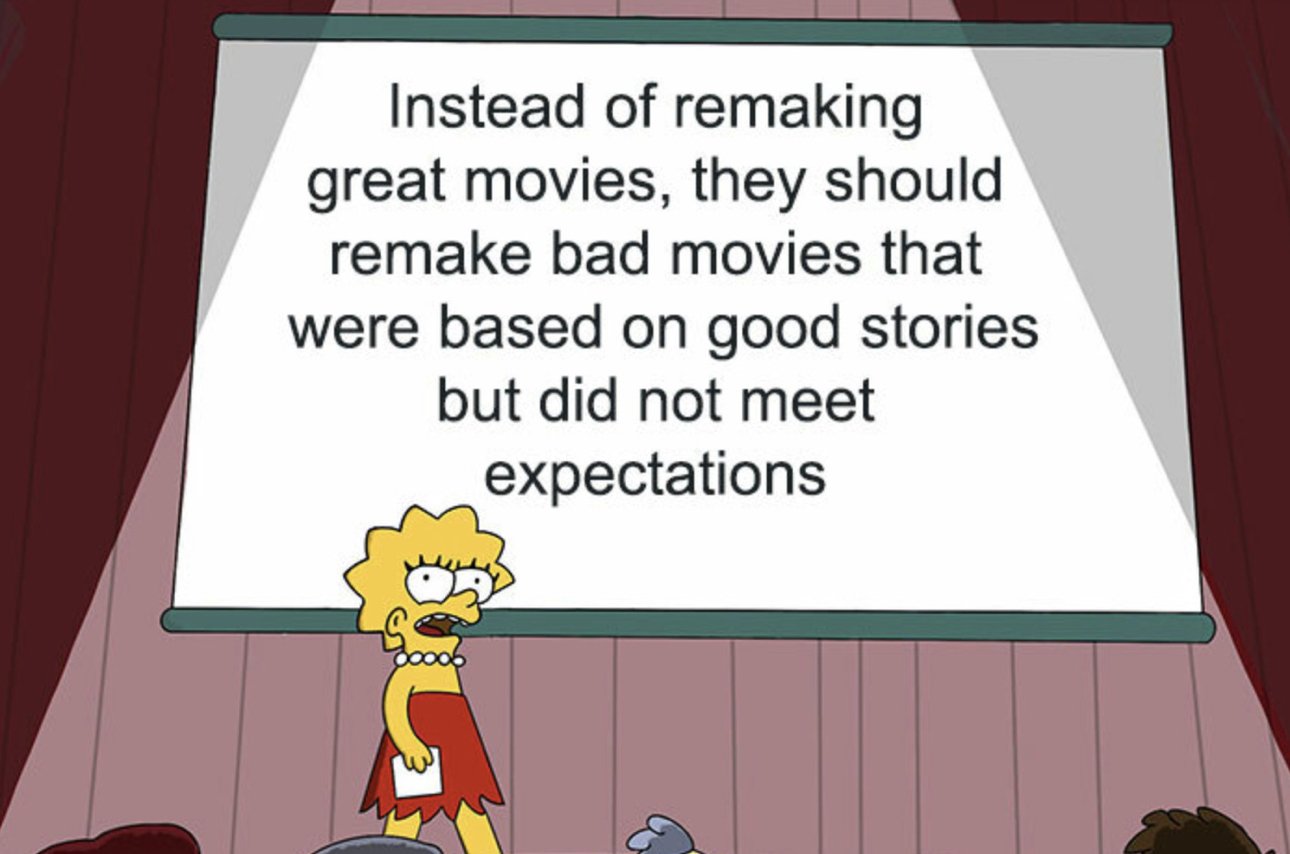this post was submitted on 19 Feb 2024
1941 points (98.0% liked)
memes
10681 readers
2476 users here now
Community rules
1. Be civil
No trolling, bigotry or other insulting / annoying behaviour
2. No politics
This is non-politics community. For political memes please go to [email protected]
3. No recent reposts
Check for reposts when posting a meme, you can only repost after 1 month
4. No bots
No bots without the express approval of the mods or the admins
5. No Spam/Ads
No advertisements or spam. This is an instance rule and the only way to live.
Sister communities
- [email protected] : Star Trek memes, chat and shitposts
- [email protected] : Lemmy Shitposts, anything and everything goes.
- [email protected] : Linux themed memes
- [email protected] : for those who love comic stories.
founded 2 years ago
MODERATORS
you are viewing a single comment's thread
view the rest of the comments
view the rest of the comments

That's fair enough.
I will admit that I'm over-egging the whole concept. However, I truly believe in the basic concept of what I'm saying. I think it's fair to say that at least a huge percentage of motion pictures have been more harmed by their limited scope than they were helped by it.
Note, as I mentioned in another comment, that directors themselves have ALWAYS chafed under the length restrictions of traditional cinema. They're always reined in by the moneyed interests, but if they had their way, even Syd Field's supposedly gospel paradigm of the three-act structure would be thrown out, in most cases.
And I can't disagree with the directors. The greatness of cinema has never been tied inherently to the runtime of a traditional movie. The things that are inspirational and beautiful about cinema all exist, whether the piece is a 45 minutes episode of a series, a 110 minute standard feature, or an epic 5 hour director's cut. The things that really define filmmaking are the photography itself, composition and lighting, acting and screenwriting, the subtle magic of the editor, the subtle-to-not-so-subtle magic of effects artists.
I genuinely believe the balance between all these factors is difficult enough, without having to fight about which scenes get cut, in order to fit in a singular feature length time constraint. Certainly, that shouldn't be seen as some kind of end-all, be-all, defining feature of motion picture art. I was being pushy and pithy about it earlier, but I really do believe that movies are only the length they are, because people only had a few hours to spend going to and from the theater.
I think so many directors of the past, if they'd had their choice in the matter, would ALWAYS have preferred to make a high quality series, rather than a limited movie. Especially if they didn't have to choose an objectively inferior picture quality and aspect ratio, as early television was lumbered with.
I think the final point is related to that, too. I think we're all still laboring under the prejudices of the early era of TV. Television was cheesy. Television was ugly. Television was cheap. Those attitudes are hard to shake off, even after we've all seen the current apex of the "small screen," and what it's capable of showing.